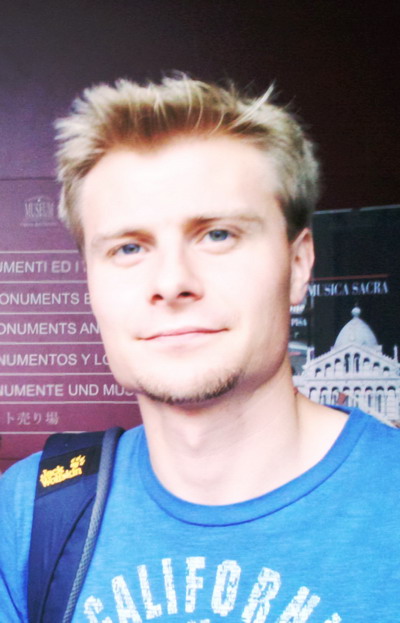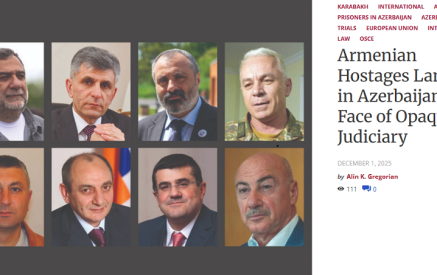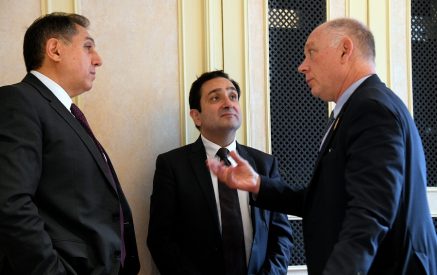verfassungsblog.de. On 15 October 2015, the Grand Chamber delivered its judgement in Perinçek v. Switzerland case. Notwithstanding some minor variations in reasoning, the outcome in the Grand Chamber is practically identical to the lower chamber. The Swiss criminal provision applied in the context of the denial of Armenian genocide was, thus, again found irreconcilable with freedom of expression under Article 10 ECHR. I have previously commented on the lower chamber judgement in a blog post entitled “Armenian Genocide versus Holocaust in Strasbourg: Trivialisation in Comparison”. On the one hand, I have overall welcomed the Court’s decision to protect freedom of speech against state censorship and instrumental memory politics. On the other hand, I have expressed scepticism about the unconvincing way the Court has coined a hierarchy between the Holocaust and the Armenian genocide. Such a hierarchy inevitably echoes sense of the symbolic injustice towards Armenian communities and schizophrenic governance of memory within the Council of Europe, where only Holocaust denial is exempted from the free-speech paradigm. Yet several aspects of the Grand Chamber’s judgement make the reasoning in Strasbourg even more controversial and require further scrutiny. In this short commentary, I offer a brief factual summary of the Perinçek case followed by a criticism of central findings by the Grand Chamber.
Facts and Judgement
Doğu Perinçek, a former leader of a Turkish workers party, made a number of controversial statements on several occasions during his visit to Switzerland in 2005, arguing that Armenian genocide is “an international lie” by the “imperialists of the EU and US”. The courts in Switzerland found him guilty under the criminal provision prohibiting denial or gross trivialization of genocides. After exhausting all the procedural tracks before Swiss tribunals, Dr. Perinçek brought his claim to Strasbourg. In its initial judgement (17 December 2013), the European Court of Human Rights has found that the criminal measure against Dr. Perinçek had disproportionally violated his freedom of speech. In its Grand Chamber’s judgement, the Court has, thus, struck the difference between protection of dignity for the Armenian community (embraced under Article 8 ECHR) and freedom of speech for Dr. Perincek (Article 10 ECHR).
The arguments of the Grand Chamber can be summarized as follows:
The applicant’s statements bore on a matter of public interest and did not amount to a call for hatred or intolerance (para. 229-241);
The context in which they were made had not been marked by heightened tensions or special historical overtones in Switzerland (242-248);
The statements could not be regarded as affecting the dignity of the members of the Armenian community to the point of requiring a criminal law response in Switzerland (para. 272-273);
There was no international law obligation for Switzerland to criminalise such statements (para. 258-268);
The Swiss courts appeared to have censured Mr. Perinçek simply for voicing an opinion that diverged from the established ones in Switzerland, and the interference with his right to freedom of expression had taken the serious form of a criminal conviction (para. 274-282).
Read also
The European Court of Human Rights is not a military tribunal and, therefore, was not expected to answer the question of whether mass massacres of Armenians in the Ottoman Turkey amounted to genocide. Nonetheless, the hearing before the Grand Chamber in January earlier this year looked like a perfectly theatrical trial with multiple actors and staged speeches attempting to advance various historical narratives. Even the year of this hearing is spectacular. 2015 marks the 100thanniversary of the tragic extermination of 1,5 million of Armenians in the Ottoman Turkey widely addressed as “Armenian genocide”. While sadly enough, media attention was focused more on the fact that George Clooney’s wife represented the Armenian side, the Court’s building was surrounded by a huge group of demonstrators with Turkish and Azeri flags clearly orchestrating this event as their rehabilitation stage.
It would be fair to say that the Court did not have any intention to facilitate such rehabilitation, as much as, for example, the US Supreme Court certainly did not want to rehabilitate Nazi atrocities when it justified parade with swastikas in a town in Illinois (Skokie, 1977). Yet its extremely lengthy judgement – together with dissenting and concurring opinions comprising of 128 pages – definitely raises a number of questions and is feasible for instrumentalization by Turkish and Azeri nationalists.
Problematic Aspects in the Court’s Reasoning
The Grand Chamber has, therefore, come to the same outcome as the Court did in its 2013 decision, namely establishing violation of freedom of expression. This outcome is good news for a community of historians mobilizing against state censorship on history. Elsewhere I have argued that criminal measures against genocide denial make little practical or normative sense. However, the difference between the Holocaust and “the rest” of mass atrocities established by the ECtHR is not only normatively problematic, but in practice invites further speculation. Such speculation would foster nationalistic Turkic identity and anti-Armenianism amongst Turkish and – after a recent military conflict over Nagorno-Karabakh – Azeri communities throughout the world.
The Court draws a difference between supposedly neutral comments of Perinçek, on the one hand, and incitement to hatred, on the other hand. According to the Court, Dr. Perinçek advanced his statements as anti-imperialist instead of anti-Armenian, taking a neutral tone on the relationship between Muslims and Armenians in the Ottoman Empire. Just a couple of years earlier, however, in the case of Leroy v. France (2008), the Court refused to accept a justification of a caricaturist drawing a parody on the terroristic attack in New York, who claimed that his picture – instead of glorifying the atrocity – was simply a condensed anti-imperialist message. On that questionable reasoning, not all Holocaust deniers express anti-Semitic messages. Yet the Court sees them as inciting anti-Semitism or glorifying the atrocities against Jews. To give another example, the Court has earlier found no violation of freedom of expression in a case where Germany imposed criminal sanctions on animal rights activists. They collaged together pictures from Nazi concentration camps with animals in cages, raising the awareness about the sufferings of animals. The Court’s neutral perception of Perinçek’s statements is therefore paradoxical.
Perinçek is an active member of Talat Pasha Committee, an organization that is concerned with a rehabilitation of the central military criminal, responsible for the massacres of Armenians, Mehmet Talat Pasha (1874-1921). It remains enigmatic how an admirer of Talat Pasha may be less anti-Armenian than a neo-Nazi fan of Heinrich Himmler being less anti-Semitic? Perinçek argues that Turks did not want a massacre of Armenians, while Western and Russian imperialist forces provoked the Ottoman government. Similarly, many Holocaust deniers and anti-Semites suggest that the Nazis just wanted to collect Jews together to transfer them to Palestine.
What distinguishes those two scenarios? Perinçek has orchestrated his statements to initiate the case for revisionism before highest European courts. He later unsuccessfully tried to repeat it in Greece, a travel-tactics familiar to a number of Holocaust deniers from the USA “guest lecturing” throughout Europe. Although mentioning the tragic case of Hrant Dink, a Turkish-Armenian activist assassinated in 2007 in Istanbul, the Court substantially disregards the specific atmosphere of denialism and gross violations of the rights of minorities in Turkey, moving central attention instead to Switzerland where – supposedly – no tensions are possible on the anti-Armenian grounds. The Court has failed to acknowledge the existence of the anti-Armenianism as a specific ideology prevalent amongst Turkish and Azeri nationalists, including those scattered in huge Turkish diasporas in Europe these days.
The Court found no international obligation to criminalize Armenian genocide denial, which is again an arguable point. Similarly it would be very hard to deduce a strong and unequivocal international obligation to criminalize Holocaust denial under the International Covenant on Civil and Political Rights, mentioned by the Court. In para. 99, the Court summarises four divergent legal models existing within the Council of Europe with regard to genocide denials: some countries do not have a criminalising clause, others penalize just Holocaust denials, there are those who punish the denial of both Nazi and communist crimes, while there are also those punishing the Armenian genocide denial and denials of similar historical injustices. Almost twenty countries, including the organizations like – ironically – the Council of Europe itself and the European Union, have recognized Armenian genocide through various forms of soft law. The same month as the Grand Chamber’s decision came through, Paraguay, for example, which is neither too close to Armenia or Turkey to mark any tensions between them, has joined that list. While clearly, to recognize and to prohibit denial of a recognized fact are two different legal modes, the judgment exposes the divergent and, at places, contradictory governance of history in European law.
Conclusions
A couple of years ago the US Supreme Court heard a case involving a picket of the Westboro Baptist Church activists on the sidewalk close to the funeral of an American soldier who died in a vehicle accident in Iraq. The sect glorifies deaths of American soldiers explaining them, inter alia, by the liberalization of homosexuality in the USA. The demonstrators displayed placards with slogans such as “American is doomed”, “You are going to Hell”, “America hates you”, “Fag troops”, “Thanks God for dead soldiers”, etc. In its 2011 judgement of Snyder v. Phelps, the US Supreme Court has held this type of speech protected by the First Amendment.
Many would find this decision irreconcilable with the European legal context of militant democracies and protection of dignity. Albert Snyder, the father of the killed marine, testified: “They turned this funeral into a media circus and they wanted to hurt my family. They wanted their message heard and they didn’t care who they stepped over. My son should have been buried with dignity, not with a bunch of clowns outside”. The majority opinion in this judgement answers to this: “Westboro believes that America is flawed; many Americans might feel the same about Westboro. Westboro’s funeral picketing is certainly hurtful and its contribution to public discourse may be negligible […]. As a Nation we have chosen a different course – to protect even hurtful speech on public issues to ensure that we do not stifle public debate”.
The problem with the Strasbourg judgement in Perinçek is not that the Court defends freedom of speech under Article 10 ECHR. Historical discussion should be exempted from instrumental state censorship in a democratic state, even if that implies protection of a “bunch of clowns outside” and “negligible contribution to public discourse”. The problem is that while acknowledging dignity of the Armenian community under Article 8 ECHR, the Court fails to express the necessary outrage about Perinçek’s statements. This goes in clear contrast with US judges acknowledging the hideousness of the message, even if they find it protected (Skokie 1977, R.A.V. v. St. Paul 1992, Snyder v. Phelps 2011, etc.). In this judgment, Perinçek, in contrast, is positioned almost as a partisan of free speech. In combination with an extremely questionable hierarchy between the Holocaust and other genocides, this failure to distance from Perinçek – albeit rightly protecting his freedom of expression – leaves strikingly little to sustain the dignity of the Armenian victims.
Uladzislau Belavusau
Dr. Uladzislau Belavusau is an assistant professor at the Vrije Universiteit Amsterdam (the Netherlands).

























































